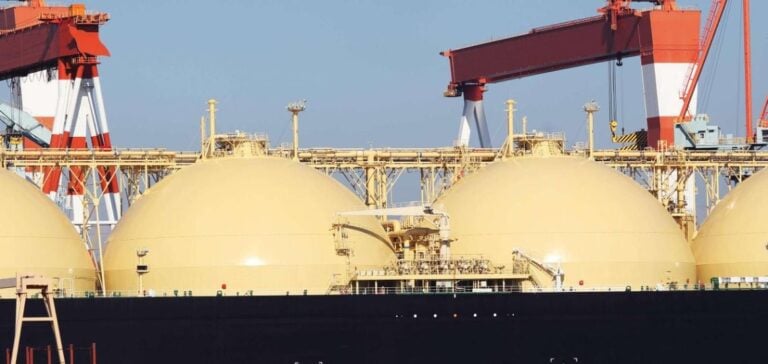Ukraine received its first shipment of liquefied natural gas (LNG) from the United States on Friday, marking a crucial step in diversifying its energy sources. This delivery comes as the country prepares to let a long-standing agreement on Russian gas transit to Europe expire.
DTEK, Ukraine’s largest private energy company, confirmed that approximately 100 million cubic meters of LNG were delivered to a Greek regasification terminal in the Mediterranean before being transported via pipeline to Ukraine. Maksym Tymchenko, CEO of DTEK, stated that this initiative aims to reduce Ukraine’s energy dependence on Russia. “Shipments like this provide a flexible and secure energy source while also contributing to weakening Russia’s influence on our energy system,” he said.
An Agreement with Russia Expires
Until now, Ukraine benefited from a lucrative transit agreement allowing Russia to transport gas to Europe. However, this agreement is set to expire at the end of 2024, and Kyiv has opted not to renew it, citing the need to strengthen its energy autonomy. This context underscores the strategic importance of this first American LNG delivery.
In response to Russian strikes on its energy infrastructure, Ukraine has also increased its electricity imports from the European Union (EU). This collaboration with the United States is part of a broader strategy to stabilize its energy grid and ease pressure on the European gas market.
The U.S. Supports Europe
The European Union, still partially reliant on Russian gas, has intensified its efforts to diversify supplies since Russia’s invasion of Ukraine in 2022. Ursula von der Leyen, President of the European Commission, has urged member states to prioritize American LNG imports, despite the often higher costs. This first Ukrainian delivery reflects the joint determination of Western allies to reduce reliance on Russian energy.
However, this dynamic presents significant challenges, including the high cost of American LNG and the limited regasification infrastructure in Europe. These obstacles could complicate the energy transition for Ukraine and its European partners.
Geopolitical Implications
This initiative represents a strategic repositioning in global energy geopolitics. While the United States strengthens its role as a major LNG supplier, tensions with Moscow continue to shape Europe’s energy decisions. Additionally, President-elect Donald Trump has recently reiterated his intention to push European nations to favor American gas, even threatening tariffs if they do not comply.
For Ukraine, this first shipment symbolizes not only a step toward energy independence but also closer integration with Western energy networks. Nevertheless, challenges remain, including persistent dependence on European infrastructure and high costs that weigh on national budgets.





















